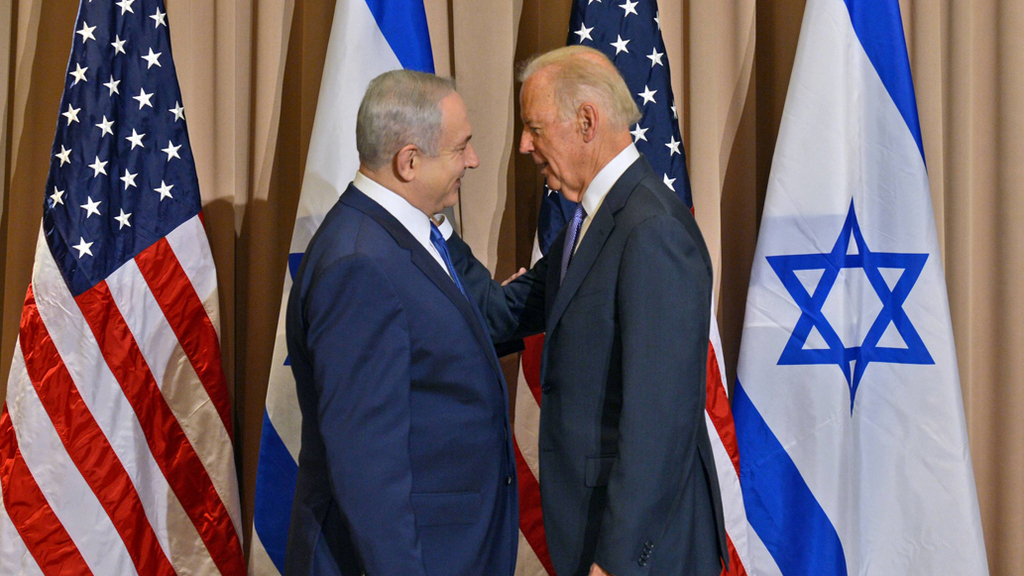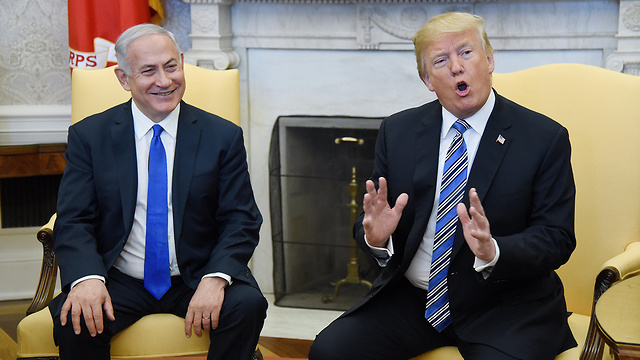In the past week, it has become clear even to those who are not experts in international and U.S. policy that the Israeli government will have considerable difficulty adapting to the new U.S. administration.
Firstly, the values, foreign policy, and strategy of the mainstream of the Democratic Party and the new White House are polar opposites to those accepted by the Trump administration.
Secondly, the Israeli government is rightly perceived in the United States as being firmly in the Trump camp. Furthermore, Prime Minister Benjamin Netanyahu has a history of confrontations with former president Barack Obama, under whom President-elect Joe Biden spent eight years as vice president.
Biden has named some senior Obama-era officials to the most influential positions in his new administration that takes office on January 20.
With the new president having more or less filled out his administration's intended top tier, Defense Minister Benny Gantz has instructed his office and the IDF to map the security and strategic issues that will most likely be controversial for the new administration.
Those making security decision in Israel see a significant difference between the Biden and Trump administrations in their basic approach to the management and implementation of policy and strategy.
Trump made many unilateral, one-off grandiose moves that relied primarily on skills he attributed to himself, rightly or wrongly, and a team of advisers who were afraid to oppose his opinion. He essentially acted as an all-powerful presenter on a reality TV show.
He also often made unilateral decisions based on profit and loss considerations without consulting and coordinating with allies, and even often intentionally pitting himself against their leaders.
Biden and his team, on the other hand, are devout believers in multilateralism - cooperating closely on complex issues with allies and coalitions who share U.S. interests.
And no matter what Israeli leaders think about the (poor) achievements of the Obama administration in the world in general and in the Middle East in particular, the defense establishment believes that the Biden administration is about to take the same path.
As such, senior members of the defense establishment recommend that dialogue with the Biden administration should primarily be carried out between the security officials of each country.
This is not necessarily due to an ideological kinship, but rather because the defense establishments already have several permanent joint bodies for security, intelligence and strategy.
These committees meet at regular intervals, once every few months, to discuss issues of common interest and have over time developed a deep mutual understanding that does not depend on who is sitting in the White House or the prime minister's residence in Jerusalem.
IDF Chief of Staff Aviv Kochavi also has close ties with Chairman of the Joint Chiefs of Staff Gen. Mark Milley, while the designated U.S. Secretary of Defense, Gen. (ret.) Lloyd Austin, a former commander of U.S. forces in Iraq, is a long-standing acquaintance of Gantz from their time in uniform.
3 View gallery


L-R: IDF Chief of Staff Aviv Kochavi, Chairman of the Joint Chiefs of Staff Gen. Mark Milley and Defense Minister Benny Gantz meeting in Israel in December
(Photo: Defense Ministry)
The main area of dispute between the Biden government and the current government in Israel is the intention of Biden and his people to return to the JCPOA, the nuclear agreement that Iran signed with the five world powers and Germany in July 2015.
Trump withdrew from the agreement and re-imposed sanctions on Iran's oil exports and its ability to make use of the international clearing system. Biden and his team have officially announced that if Tehran goes back to abiding by the terms of the nuclear deal, the U.S. will respond in kind.
This means that the biting sanctions that have destroyed Iran's economy will be lifted, and it will be able to return to exporting oil for monetary payment.
In return, Biden intends to enter into negotiations with Iran on amending problematic clauses in the original nuclear deal, restrictions on its ballistic missile program and an end to its regional meddling.
No one knows exactly what the Biden administration wants to achieve from the Iranians, and how it will achieve it. But Israel's defense establishment believes that a return to the original nuclear deal, as it was written, would be a disaster and would significantly advance Iran - in the near future - to obtain nuclear weapons.
This would especially be the case if the sanctions on Tehran are lifted before the Iranians give anything concrete in return.
Bur the defense establishment also believes that a confrontation with the Biden administration from the very start would not be beneficial and may even harm Israeli interests, as was the case with Obama.
In order to avoid such a confrontation, the Defense Ministry has prepared a detailed series of proposals and suggestions to be handed to the Americans to assist in the negotiations (if and when they begin) with Tehran, with the hope of also influencing their outcome.
One such possible proposal is requiring Iran to commit to not developing or manufacturing ballistic and cruise missiles capable of carrying a nuclear warhead, but to allow the development and production of limited quantities of medium and short-range missiles.
In any case, the Israeli defense establishment wants to conduct this sensitive dialogue with the Biden administration behind closed doors and without media leaks.
The question is whether Jerusalem will cooperate.



